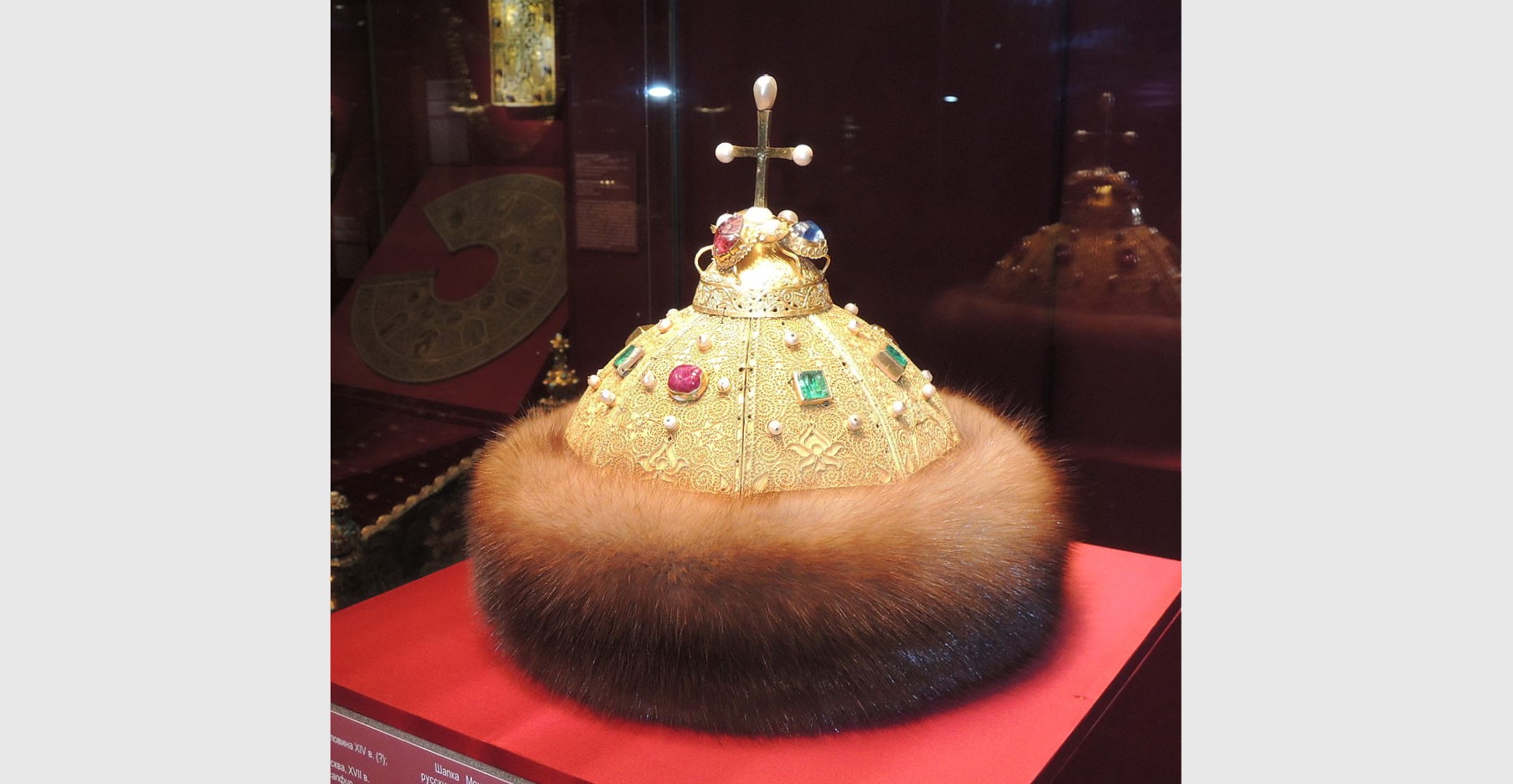The cap of the Monomakh, a symbol for many Russians of Muscovy’s links to Constantinople and thus fundamental to the idea of Moscow as the third Rome, did not come from the second Rome as most Russians imagine but from Khan Uzbek of the Golden Horde, according to Mansur Mirovalyev.
The Uzbek historian’s argument, presented in a 2800-word scholarly article, acknowledges the other theory of the cap’s origin but says there are far better reasons to think that it came from Uzbek and thus its invocation as a prop for the notion of Moscow as the third Rome is unjustified.
And drawing on the works of other historians, including Russian ones, Mirovalyev suggests that it was Khan Uzbek who determined that Moscow would first become primus inter pares among Russian principalities and then the dominant one, a view that many Russians are certain to view as at a minimum lese majeste or even as an insult to their national dignity.
The Uzbek historian notes that he is far from alone in his position on the provenance of the cap of the Monomakh. Irina Bobrovnitskaya, who curates the crown, argues that Moscow Prince Ivan Kalita received the cap from Khan Uzbek, and Moscow historian Nikolay Borisov considers it to be a woman’s tyubeteika which belonged to the wife of Moscow Prince Yury.
Uzbek “ruled the Golden Horde in its golden age,” the Tashkent historian says, and during his reign, “the Moscow princes began to aspire to primacy over the remaining Russian principalities, above all as allies of the Horde which gave them the right to collect tribute from the others.
Consequently, Mirovalyev says, “if it weren’t for Uzbek, then the Russian state in its present-day form, as a continuation of the Grand Principality of Muscovy simply would not exist.” It might even have happened that Islam would have become the predominant religion of that state or that it might have accepted Christianity on its own.
Picking Moscow as its favorite, the Uzbek historian says, the regime of Uzbek chose a weak competitor in order to promote its plans of dividing and ruling this part of its own empire. And he notes that the ethnic diversity of the region is so great that “even the word ‘Moscow’ most likely is Finno-Ugric in origin.”
But as has often happened in other empires, border cities and states, often emerge as the dominant players with the help of outsiders. And that is what happened in the case of Muscovy. But its help came not from Constantinople as most Russians now imagine but rather from the Golden Horde, something they are reluctant to admit.
Further Reading:
- Ukrainian autocephaly destroys ideological foundation of Russian empire, Espresso says
- Moscow, “the Third Rome,” may suffer fate of the Second rather than the First
- Ukrainian independence exposed bankruptcy of all three Russian imperial projects, Ikhlov says
- Tatar historian: ‘Russians are no more European than are the Tatars’
- Ukrainian conflict is between ‘heirs of Kyivan Rus’ and ‘heirs of Golden Horde’
- Putin’s ‘appropriation’ of medieval Ukrainian princess reflects more than historical arrogance
- Symbolic expansion: how Putin annexes history, not only territories
- Why there are Muslim crescents on Orthodox crosses in Moscow but not in Kyiv
- How Moscow hijacked the history of Kyivan Rus’




